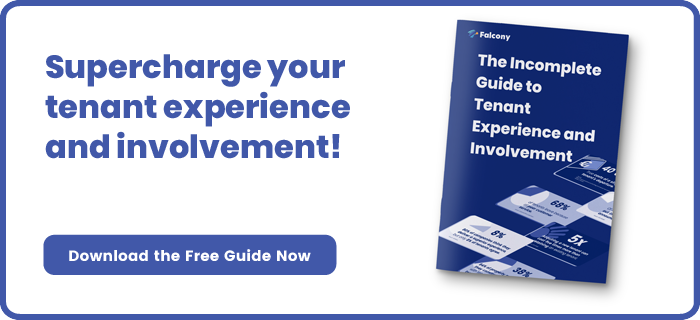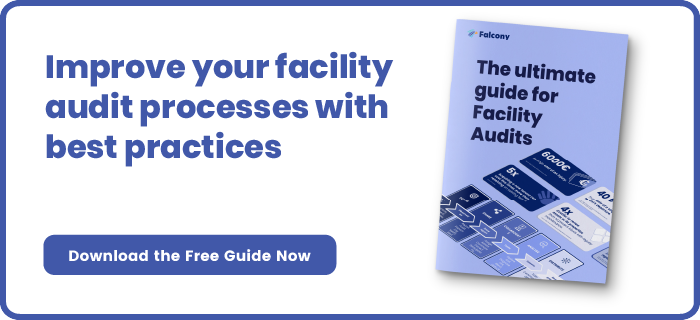7 Typical Tenant Experience Issues in Business Parks and Offices
In the competitive landscape of commercial real estate, the tenant experience plays a pivotal role in attracting and retaining occupants in business parks and office buildings.
A positive experience not only enhances tenant satisfaction but also contributes to the overall success of property management. However, several common issues can hinder this experience. Here, we explore seven typical tenant experience issues faced in business parks and office buildings.
Poor Communication
Effective communication is vital for fostering a strong landlord-tenant relationship. Tenants often report dissatisfaction when there is a lack of timely updates regarding building maintenance, policy changes, or other important information. When tenants feel disconnected from property management, their concerns may go unaddressed, leading to frustration. Regular newsletters, proactive communication channels, and feedback mechanisms can help bridge this gap. Implementing a tenant portal for real-time updates and allowing tenants to voice their concerns can significantly enhance transparency and trust. Additionally, periodic surveys can provide valuable insights into tenant needs, allowing property managers to respond more effectively.
Inadequate Maintenance and Repairs
One of the most frequent complaints from tenants is related to maintenance issues. Whether it's malfunctioning heating systems, faulty lighting, or unkempt common areas, inadequate maintenance can lead to frustration and diminished productivity. When problems are not addressed swiftly, they can escalate, resulting in higher repair costs and tenant dissatisfaction. A proactive maintenance schedule that includes regular inspections and preventive measures is essential. Furthermore, having a dedicated maintenance team with clear response protocols ensures that issues are resolved promptly. An effective online reporting system can empower tenants to report maintenance concerns easily, thereby facilitating quicker resolutions.
Insufficient Amenities
Today's tenants often seek more than just office space; they desire a range of amenities that enhance their work-life balance. Insufficient or poorly maintained amenities—such as fitness centres, lounges, or outdoor spaces—can negatively impact tenant satisfaction. A workspace that offers an array of amenities, including high-speed internet, meeting rooms, and recreational areas, can significantly enhance productivity and employee morale. Property managers should continually assess tenant needs through surveys and informal feedback and consider incorporating sought-after amenities. Additionally, partnerships with local service providers can enhance the value of amenities offered, making the business park more appealing to potential tenants.
Security Concerns
Safety and security are paramount for tenants. Insufficient security measures, such as inadequate lighting, lack of access control, or ineffective surveillance systems, can create an unsettling environment. Tenants need to feel safe not only within their individual offices but also in communal areas. Implementing robust security protocols, such as key card access, well-lit pathways, and regular security patrols, can significantly enhance tenant confidence. Additionally, engaging tenants in security discussions, such as conducting safety drills or offering personal safety workshops, fosters a sense of community while ensuring that tenants feel secure in their environment.
Parking Issues
Parking availability is a critical factor for many tenants. Insufficient parking spaces, unclear signage, or poorly managed parking systems can lead to daily frustrations. A lack of parking can deter prospective tenants and negatively impact employee morale. Property managers should evaluate parking solutions regularly, considering options such as designated spaces for tenants, reserved visitor parking, and clear, informative signage. Implementing a digital parking management system can streamline parking processes, allowing tenants to book spaces in advance and reducing congestion during peak hours. Offering flexible parking arrangements, such as monthly passes or discounted rates for long-term tenants, can further enhance the tenant experience.
Lack of Flexibility
In an ever-evolving business landscape, tenants often require flexibility in their leasing agreements. Rigid lease terms can hinder growth or adaptation, making it essential for property managers to offer flexible options that cater to tenants’ changing needs. The ability to scale up or down, switch office configurations, or extend lease terms can be crucial for businesses navigating fluctuating market conditions. Providing adaptable spaces that can accommodate various layouts—whether open plan, collaborative zones, or private offices—can enhance tenant retention. Furthermore, offering co-working spaces or short-term leases can attract a diverse range of businesses and foster a dynamic tenant community.
Limited Community Involvement
Tenants in business parks and office buildings often desire a sense of community. A lack of involvement opportunities, such as networking events or social activities, can lead to feelings of isolation. Encouraging interaction among tenants not only enhances their experience but also promotes collaboration and innovation. Property managers should strive to foster a vibrant community atmosphere by organising regular events, such as lunch-and-learns, workshops, or social gatherings, that encourage networking and camaraderie. Creating a shared online platform for tenants to share news, events, and resources can further enhance community involvement, allowing tenants to feel more connected and invested in their workspace.
Conclusion
Addressing these typical tenant experience issues is essential for creating a thriving business environment. By prioritising effective communication, maintenance, amenities, security, parking solutions, flexibility, and community involvement, property managers can enhance tenant satisfaction and ultimately drive the success of their properties. As the commercial landscape continues to evolve, a commitment to understanding and addressing tenant needs will remain key to fostering a positive experience. By investing in the tenant experience, property managers not only secure tenant loyalty but also position their properties as sought-after locations in a competitive market.
If your organisation is looking for a 360° tenant experience tool to involve all employees, service providers and tenants to improve the quality of your operations, have a look at the 30-day free trial of Falcony | Tenant Portal:
We are building the world's first operational involvement platform. Our mission is to make the process of finding, sharing, fixing and learning from issues and observations as easy as thinking about them and as rewarding as being remembered for them.
By doing this, we are making work more meaningful for all parties involved.
More information at falcony.io.

Related posts
The Impact of Smart Building Solutions on Tenant Satisfaction
The rapid advancement of technology has transformed the commercial real estate industry.
Smart...
The Future of Commercial Tenant Experience: Trends and Insights
The commercial real estate landscape is rapidly evolving, and so is the tenant experience.
As...
Enhancing Flexibility in Commercial Spaces: Adapting to Tenant Demands
The landscape of commercial real estate is evolving, and so are the demands of tenants. In today's...






